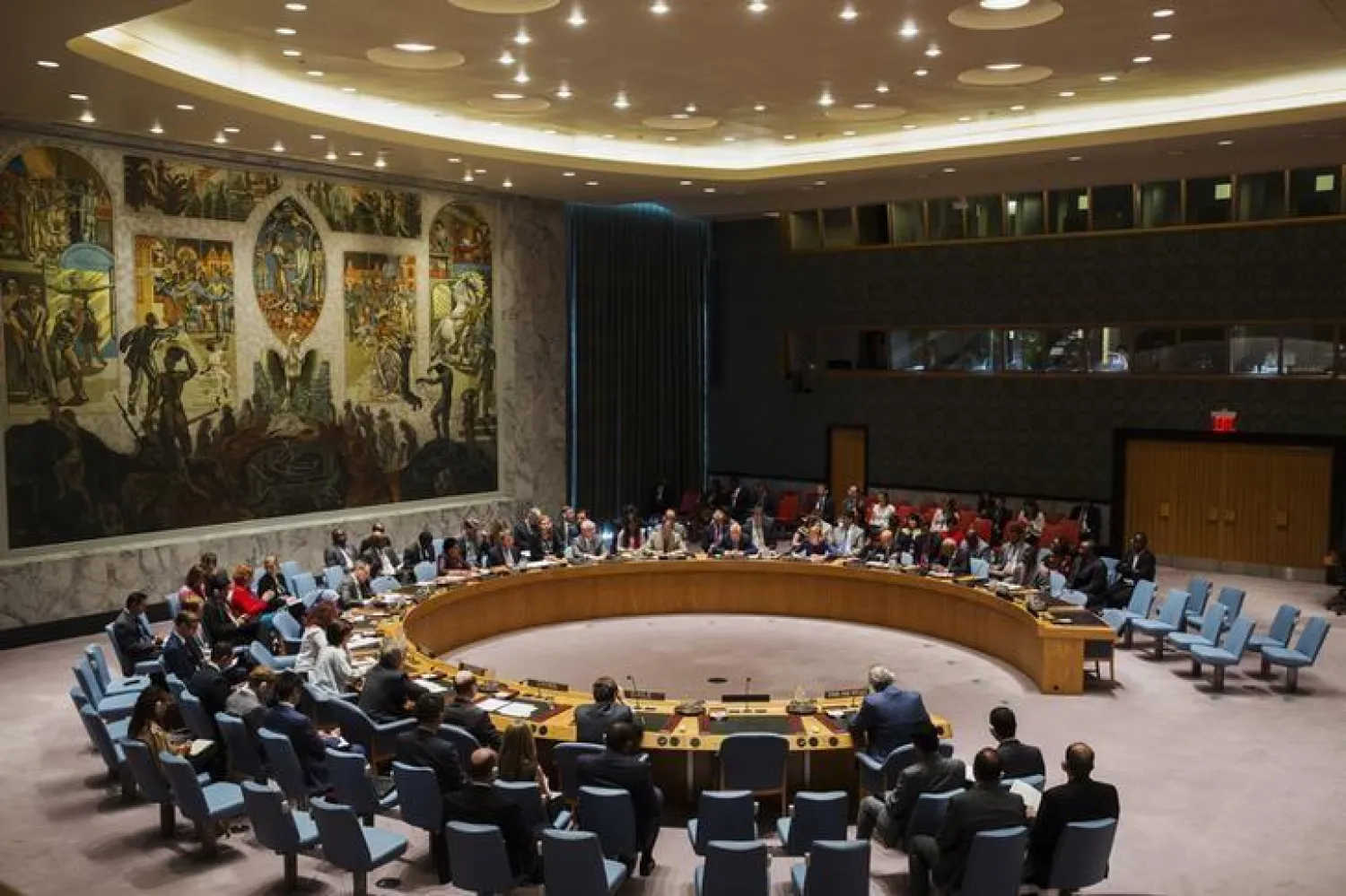A new resolution has been submitted to the UN Security Council on a ceasefire in various conflicts around the world during the coronavirus pandemic, to replace one drafted by France and Tunisia that the United States has blocked.
Encompassing five major points -- compared to the previous draft's nine -- the proposal by the two non-permanent members of the Security Council and seen by AFP "demands a general and immediate cessation of hostilities in all situations on its agenda."
Such a move is intended to help some 20 countries in crisis or at war - from Syria and Yemen to Libya, South Sudan and Congo - battle the coronavirus, but it is unclear if concrete steps on the ground have been taking.
The resolution submitted by Germany and Estonia on Tuesday borrows from the French-Tunisian proposal, using language agreed upon by the 15 Council members during negotiations that have been ongoing since March or that had been used in previous resolutions, such as making ceasefire exceptions to battle militant groups.
As in the French-Tunisian resolution, the new proposal calls for a "humanitarian pause for at least 90 consecutive days" in order to allow for the delivery of aid to the hardest-hit communities.
A date has not yet been set for the vote, but it could happen quickly if none of the five permanent Council members threatens to use its veto, as when Washington criticized the mention of the World Health Organization (WHO) in the French-Tunisian resolution.
The German-Estonian text makes no mention of the WHO, so the uncertainty resides with China, which until the last minute insisted on a reference to the UN health group, even an implicit one.
The new resolution was proposed Tuesday during a teleconference held behind closed doors and organized by Estonia, which holds the rotating presidency of the Security Council.
One of the diplomats, speaking on condition of anonymity, said China declared in the meeting that it backed swift action in the Council.
But the Council is trying again to reach agreement on the first resolution.
The 15 Council ambassadors discussed how to proceed in closed consultations and afterward Russia’s UN Ambassador Vassily Nebenzia said “all Council members are willing to come to a final agreement.”
“I would assure you that the willingness to mend bridges is there, and we will attempt it in the nearest times,” he told a video news conference. “We have to respect the differences that we nearly managed to bridge, but still have not arrived there yet.”
Nebenzia said there was agreement on almost all the rest of the resolution.
Tunisia’s UN Ambassador Kais Kabtani said after the meeting that “Tunisian authorities are conducting at this moment intensive consultations at the highest political level” to resolve the differences.
He said new compromises with be presented by Tunisia and France “very soon” in hopes of reaching consensus.









